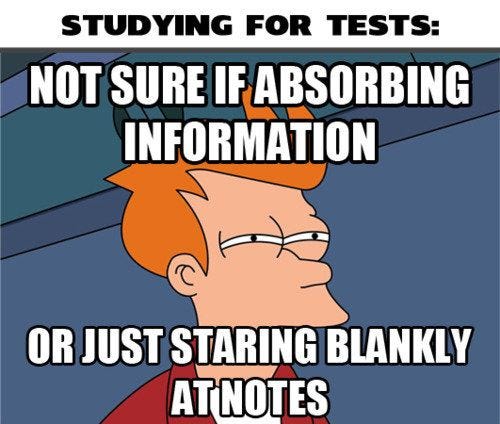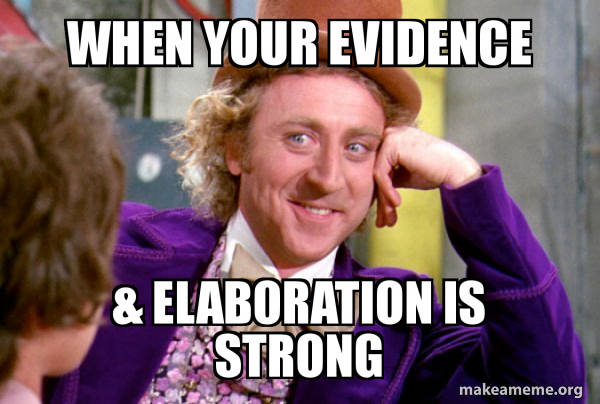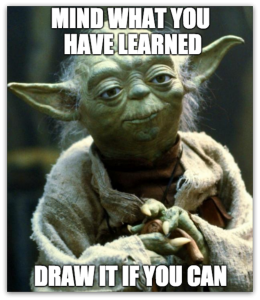By Emma Sandlin
It is quite difficult to start college. There are several issues that must be resolved, the most important of which being how to comprehend and absorb the content in the best possible way. One of the many worries that accompany beginning college is learning how to use elaboration when studying new material. According to cognitive psychologists, elaboration is a very useful technique for enhancing learning and memory retention (1). Elaboration is the process of bringing new information to life by connecting it to what has already been learned or by creating meaningful connections. Students can improve their comprehension and retain more information by using the elaborative encoding method. Study skills mastery is essential to achieving academic brilliance. Elaboration is shown to be an effective tactic for boosting understanding, fortifying memory retention, and encouraging in-depth learning (1). Elaboration makes study sessions more lively by enticing students to actively interact with the content, draw connections, and develop ideas (2). Students that integrate elaborative processing into their study regimens open the door to an abundance of knowledge that is just waiting to be discovered and comprend (3).

Understanding Elaboration
Elaboration is actively interacting with the content and going beyond a basic comprehension of it. It encourages students to explore deeper into the material, creating connections and drawing similarities, as opposed just memorizing facts by heart. As students make connections between unfamiliar and familiar concepts, they are able to convert information into knowledge and build a rich brain network of connections (4). By pushing children to go beyond basic knowledge, elaboration acts as an incentive for comprehension (2). Students can utilize strategies like in-person summaries, analogies, and producing real-world examples when they come across new material (3). They develop a stronger bond with the subject matter and reinforce their comprehension by doing this.
The Power of Elaborative Encoding
A great deal of study has demonstrated how elaboration can enhance learning outcomes. People who elaborate on new information not only encode it more thoroughly but also improve its ability to be recovered. They provide mental scaffolding that helps with comprehension and long-term memory by making significant connections between ideas (1). Elaborative encoding is essentially a mental exercise that improves cognitive functions and makes knowledge storage and retrieval easier (5). Memory retention and elaboration go hand in hand. Students form deeper mental associations when they actively interact with the content through elaborative processing. These associations function as mental scaffolding, offering a structure for information storage and retrieval (3). Elaboration can therefore improve long-term retention as well as short-term memory.

Techniques for Studying with Elaboration
Using elaboration to learn how to study and comprehend new stuff is comparable to laying a solid foundation for your knowledge. Here are some examples of how to specifically use elaboration tactics when learning to read and comprehend new material.
Make Connections: Establish links between recently acquired information and past understanding or life experiences. When studying historical events, draw comparisons with current issues or their broader historical background.
Use Analogies and Metaphors: These are useful tools for assisting others in understanding complex ideas. By making connections between unfamiliar and known concepts, learners can gain a deeper understanding of abstract subjects.
Picture Concepts: By creating mental pictures that improve understanding, visualization can help with elaboration. Make flowcharts, mind maps, or diagrams to graphically depict the relationships between concepts (1). Visual aids stimulate several brain pathways in addition to reinforcing learning. Put yourself in the shoes of someone using various study strategies, then see the results. Imagine yourself actively interacting with the information, forming connections, and having breakthroughs.
Make Examples: As you come across new ideas, come up with instances that highlight their significance or application. Learners strengthen their comprehension and solidify their knowledge by providing clarifications on real-world examples (3) .
Practice Recall: To reinforce thoroughly encoded knowledge, practice retrieval on a regular basis. To help you remember important ideas and related details, give yourself a quiz or utilize flashcards. Over time, retrieval improves memory retrieval pathways, increasing information accessibility. Consider situations in the past where you were able to successfully absorb new information and note the tactics that proved effective…(4). Making flashcards, summarizing the important ideas, or imparting knowledge to others are all great ways to do a practice recall.
Assess Your Study Materials: Constantly assess your progress in learning how to absorb new material and conduct research. Consider the strategies that have worked the best for you and how your knowledge has evolved over time. You can enhance your study techniques and promote elaboration by engaging in this reflective process.

Conclusion
It is impossible to overestimate the importance of elaboration when learning new content. Learners can greatly improve their comprehension and retention by actively engaging with the material, making relevant connections, and using a variety of elaborative tactics (3). Whether you’re a student getting ready for an exam or someone who enjoys learning about a new subject, applying the concepts of elaboration can change the way you learn (4). To get the most out of your mind, learn to appreciate the art of elaboration. Elaboration strategies will help you understand effective study techniques and establish a stronger basis for next learning assignments as you learn to read and comprehend new material (5). By actively engaging in the learning process, forming connections, and engaging in reflective practice, you may improve both your academic performance and study abilities.
References:
(1) Admin, W., & Sumeracki, M. (2020). Learning scientists study strategy: Using elaboration. LARC. https://larc.uci.edu/2020/03/19/phasellus-a-ullamcorper-sapien-in-tempus-leo-etiam-interdum-commodo-varius/
(2) Avery , M. (2022). Teaching resources how to get the most out of studying … Teaching Resources.https://www.samford.edu/departments/files/Academic_Success_Center/How-to-Study-Teaching_Resources.pdf
(3) Chew , S. (2020). Teaching study skills (not just study tips) in introductory psychology. American Psychological Association. https://www.apa.org/ed/precollege/psychology-teacher-network/introductory-psychology/study-skills
(4) Culves , P. (2021). Elaborating on elaboration. Elaborating on Elaboration | Department of Education. https://www.maine.gov/doe/learning/II/insights
(5) Sumeracki, M. (2021, February 18). Learn how to study using… elaboration. The Learning Scientists. https://www.learningscientists.org/blog/2016/7/7-1
Hello Emma! I enjoyed your post quite a lot and I thought you did a great job of explaining elaboration to us! Coming in as a freshman was very hard and I’m sure if I would’ve used these I would’ve be far better off when studying. I liked how you gave techniques and hoot use elaboration all kinds of different ways when studying! I will definitely keep these in mind when studying in the future!